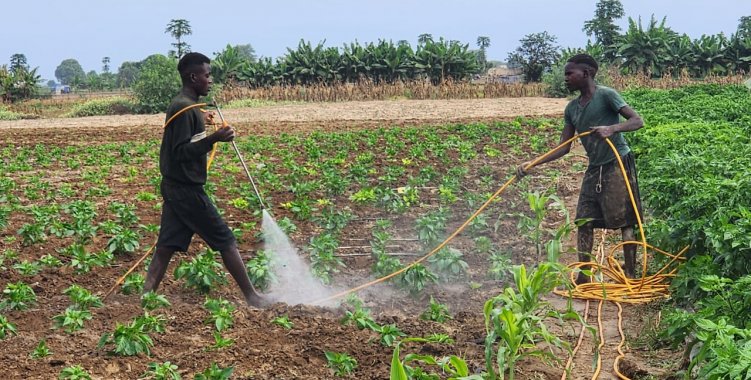Small farmers dominate a large part of Angola's agrarian structure and these, according to ADRA, will not be in a position to cope with the use of genetically modified seeds, given their demand in terms of fertilizers.
"Without a doubt, this type of seeds has very high levels of productivity, guaranteeing very high productions, but as they are seeds that have undergone genetic alterations, they are also demanding in terms of fertilizers, products for controlling pests and diseases", said, this Tuesday, the secretary general of ADRA, José Katiavala.
Speaking to Lusa, the official highlighted that small farmers in the country continue to have difficulties accessing fertilizers and the introduction of genetically modified seeds could worsen the shortage of this product in this agricultural segment.
And, "therefore, they are not within the reach, for example, of small farmers who dominate our agrarian structure", he said, highlighting that modified seeds can contribute to the erosion of native seeds.
"Hence, there is a current that advises that for a country like Angola, genetically modified seeds are probably not the priority", he highlighted.
"We have crucial problems such as, for example, access to fertilizers, since a large part of our soils have little natural fertility, we could opt for another type of improved seeds, but not necessarily transgenic seeds", he insisted.
The President, João Lourenço, recently created a Genetically Modified Seeds Committee (CSGM), aiming to establish a biosafety system with standards and inspection mechanisms in the country for import, cultivation, transit, research, release into the environment, handling and use of these seeds.
According to the Government Portal, the CSGM held its first meeting on Friday, when its coordinator and Minister of State for Economic Coordination, José de Lima Massano, highlighted that the operationalization of the body must "accelerate, enhance and encourage the growth of agricultural activity".
"The current challenges of food security in Angola require the improvement of production techniques, based on science and modern biotechnology, especially in the face of climate change and population growth", said Massano, quoted by the portal.
The introduction of transgenic seeds in the country, said the secretary general of ADRA, "also requires" an investment in research, noting that research in Angola encompasses numerous problems.
Research in Angola "has the problems that we know, we don't have specialized institutions that can give substance to this matter, we have one or the other, but there are very few and this is another challenge", he argued.
"My personal opinion is that it is not a priority, taking into account the agricultural problems we have, without neglecting obviously, that there is an emerging agribusiness sector that aims to improve productivity levels (...), but it has environmental consequences. This is a topic that I think will be on the agenda in the near future", concluded José Katiavala.







